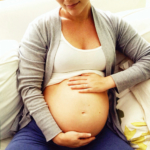A recent article suggests that rapid repeat pregnancy, defined as a pregnancy occurring less than 12 months after childbirth may be more common among women with schizophrenia. The study included 1,565 women with schizophrenia; 6.3% had a rapid repeat pregnancy, compared to 3.9% of the women without schizophrenia. The adjusted relative risk (aRR) was estimated to be 1.31. In this study, fewer than half the women with schizophrenia received any form of hormonal or surgical contraception in the first year after delivery.
The authors speculate that many factors may contribute to this finding. Women with schizophrenia are at increased risk for unplanned pregnancy and at increased risk for sexual assault. Higher by high rates of comorbid substance use disorders in this population may also increase risk for unplanned pregnancy and sexual assault. Nonetheless, over half of these women are not using a contraceptive; thus, encouraging the use of effective contraceptives may help to prevent the adverse outcomes associated with raped repeat pregnancy.
Ruta Nonacs, MD PhD
Risk of rapid repeat pregnancy in women with schizophrenia (Contemporary Ob/Gyn)








Leave A Comment